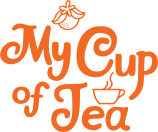
We're Hearing Voices
In the Dark Knight, the sequel to Batman Begins, the late Heath Ledger plays the Joker, arguably Batman’s most well-known nemesis. By most accounts, Ledger steals the show with his portrayal of the deeply disturbed villain and gifts moviegoers a slate of memorable quotes like this one:
“I know the voices in my head aren’t real, but sometimes their ideas are absolutely awesome.”
Sometimes the voices in our heads lead us to ideas and conclusions that aren’t so awesome. Those “voices” are shaped by our own experiences and influences. For example, if a person was raised in a rural community and traveled infrequently, she might have some preconceived notions about what living in a city is like, the way people who live there act, and what things are important to them. It’s natural. But our notions become problematic when we are convinced of their validity based on our own disparate experience.
Since the beginning of My Cup of Tea, we have prioritized ensuring that the voices of the women we serve are heard, valued, and heeded. Admittedly, we have succeeded at times and failed at others, but we continue to seek meaningful ways to amplifying their voices.
Most recently, we made some adjustments to the content of our YouTube series, She Steeps. To date, we have produced twenty-one episodes hosted by several different My Cup of Tea women. Most of the content has been focused on tea – how to properly steeps it, health benefits of drinking it, its history, and so on. The videos are interesting and informative but have been lacking in one critical element – an authentic voice.
So, we brought together a group of the women in a roundtable setting to discuss weightier issues than whether one should drink tea with their pinky up or down. Moderated by volunteer Shelley Hill, the women have taken on the topics of Martin Luther King, Jr – His Legacy and How We Should Honor It; Black History Month – Should We Celebrate It; and Does Memphis Have a Crime Problem and What are the Solutions.
We learned that the women thought Dr. King’s legacy was important and should be honored, but there was disagreement as to how it should be honored. Each had a different memory of how parents and grandparents instilled in them the messages of Dr. King and how it had impacted their lives.
All agreed that Black History should be celebrated and taught, but each had a different thought about how. One suggested that all cultures should have a month, week, or day and be celebrated. Each one was proud to be of African descent, but also proud to be an American.
And on the issue of crime in our community, each one has been personally affected, but they disagreed about whether crime is worse in Memphis than any other city.
There is much we can and have learned from the My Cup of Tea women. One is that the opinions of Black women are not monolithic despite what surveys and political polls might tell you. Another is that struggle and poverty do not equate to simplemindedness, but often incubates empathy and wisdom.
As we endeavor to hear and share the voices of the My Cup of Tea women, it is essential that we mute our own voices. Like our mothers and teachers used to tell us, “You can’t listen if you’re talking,” especially if you are only talking to yourself.


